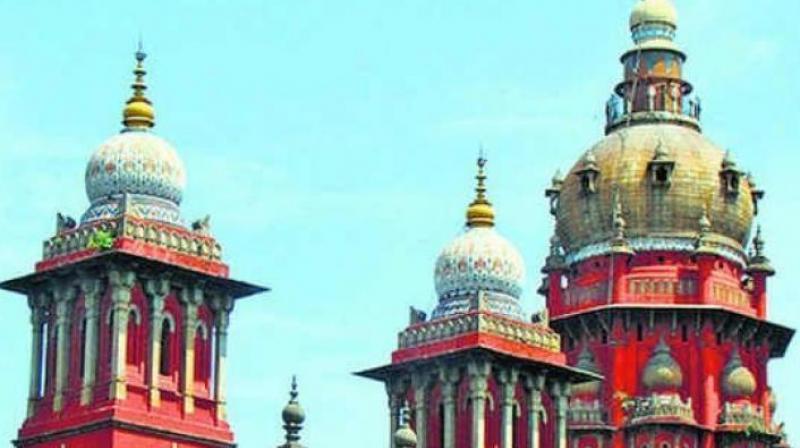HC rules as illegal all land acquired for ‘public purposes’ by Tamil Nadu govt
The bench said in view of the requirements of Article 254 (2) of the Constitution, section 105-A of the New Act, was virtually otiose.

Chennai: Holding that all land acquisitions made under the three state enactments after September 27, 2013, as illegal, the Madras high court has quashed the same.
A division bench comprising Justices S.Manikumar and Subramonium Prasad however saved those lands which have already been put to use and the purpose for which the land was acquired has been accomplished.
Allowing a batch of petitions from the Caritas India and others and concurring with the submission of senior counsel P.Wilson, the bench said, “The writ petitioners before us ultimately succeed, because, Article 254 (1) by its operation rendered the impugned Tamil Nadu Legislations repugnant, and null and void, as on the date on which the New Act (Right to Fair Compensation and Transparency in Land Acquisition, Rehabilitation and Resettlement Act) was made, i.e., September 23, 2013, the date of making of the new Act and therefore the impugned Acts do not survive”. The bench said by enacting section 105-A of the New Act, the state of Tamil Nadu could not have revived the three state Acts (Tamil Nadu Acquisition of Land for Harijan Welfare Scheme Act, Tamil Nadu Acquisition of Land for Industrial Purpose Act and Tamil Nadu Highways Act), that had become repugnant as on September 27, 2013.
"In order to revive these Acts, the state must re-enact these statutes, in accordance with Article 254 (2) of the Constitution of India and obtain the assent of the President. Merely, by inserting section 105-A and the 5th schedule, in the new Act, these impugned enactment do not get revived. Since this had admittedly not done, the Acts remain repugnant, and Article 254 (1) (giving overriding effect to the provisions of law made by the parliament, which the parliament is competent to enact or to any provision or to any existing law in respect of matters enumerated in List 3)renders them inoperative", the bench added.
The bench said in view of the requirements of Article 254 (2) of the Constitution, section 105-A of the New Act, was virtually otiose. "Since we have already held that section 105-A has not revived the State Acts, the validity of Section 105-A per se, need not be examined by us. The provisions of section 105A (2) and (3) are mandatory in view of the necessity of complying with these provisions. The state government has failed to make the necessary notifications, as contemplated under 105A (2) and as such the provisions of section 105A (2) have not been satisfied. Since the notifications have not been made under sub-section (2) the requirement of sub-section (3) i.e., placing the draft notification before the state legislature has also obviously not been met. We therefore hold that the requirements of section 105A (2) and (3) have not been satisfied, and as such the insertion of the enactment in the 5th schedule of the new Act was not done in accordance with law", the bench added.

